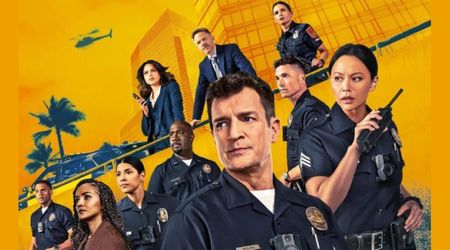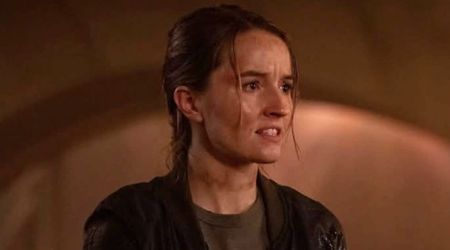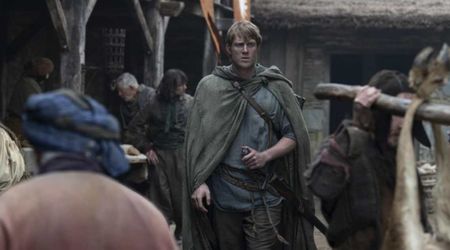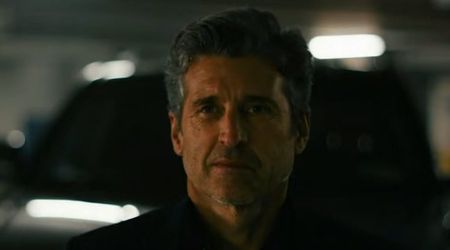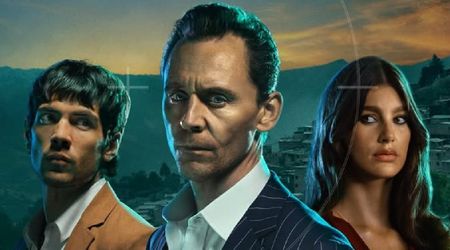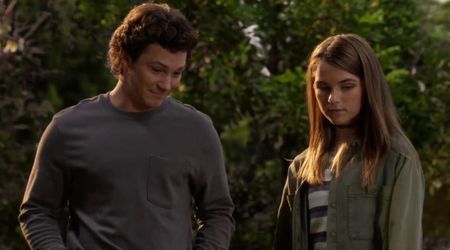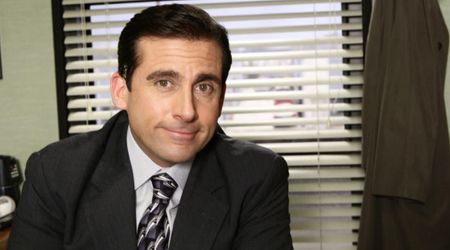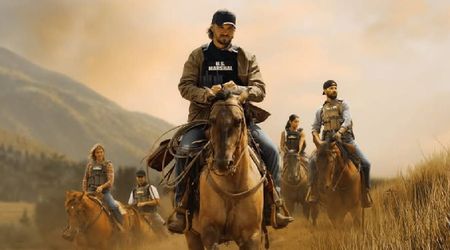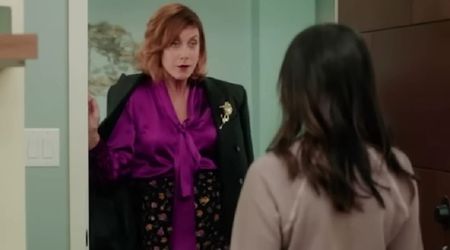'The Murder of George Floyd: A Nation Responds': ID panel discusses police brutality, racism and changes ahead

The death of George Floyd, a 46-year-old unarmed African-American man, at the hands of former police officers in Minneapolis, led an enraged country to swarm the streets in demand for justice. The George Floyd protests, as they subsequently came to be known in turn galvanized the nationwide #BlackLivesMatter movement calling for the end of police brutality and racism against people of the black community.
Floyd was murdered by former Minneapolis police officer, Derek Chauvin, who pinned him down to the ground with his knee on Floyd's neck, while the man helplessly begged with him to let him go because he couldn't breathe. Eight minutes later, Floyd had breathed his last. The incident was captured on video and posted on social media, which went viral instantly. The outcry it incited has sparked one of the biggest revolutions of the decade. Floyd was laid to rest on June 9, in a private funeral service at The Fountain of Praise Church. Chauvin and three other officers were arrested and charged with second-degree ad third-degree murder and manslaughter.

On June 9, Investigation Discovery (ID) aired a 40-minute live panel discussion focusing on the effectiveness and conduct of law enforcement officers, the rampant racism against the black community, the activism sweeping the nation, and the change that it will bring with it. The special titled 'The Murder of George Floyd: A Nation Responds' was hosted by ID's Tony Harris and brought together leading figures in a debate to discuss modern-day policing and police brutality. The panel comprised PBS Newshour correspondent and NBC & MSNBC political contributor Yamiche Alcindor; former Baltimore police commissioner Kevin Davis; racial justice attorney, author and activist Lurie Favors; Co-Founder of the National Coalition of Law Enforcement Officers for Justice, Reform and Accountability, Redditt Hudson and civil rights activist and organizer of Campaign Zero, Deray McKesson.
On police brutality

Floyd was murdered by an American police officer and that has become America's most important conversation as of the moment. "Now is not the time for law enforcement to be defensive, now is the time for reflection and introspection. It's time to change American law enforcement as we know it," said Davis. McKesson drew attention to the fact that police brutality has been rampant for years with many people having lost their lives because of it. In March and April 2020, the police had killed the same number of people as of the March and April 2019, he added. The Covid-19 quarantine and lockdown did nothing to change that. Data obtained from 2019 also pointed at black people being more afraid of being killed by a police officer than by community violence.
"Derek Chauvin stuck his hands in his pockets when he let that man, expired fully expecting that no one would hold him accountable because no one would value that black life enough", said Hudson. The reactions to the video of Floyd's unfair death has been an uproar against the system that we live in. "I think that we as human beings can all agree that even if there was anything that George Floyd did to be arrested that day, that arresting someone should not be fatal. The other officer standing there as bystanders are screaming. 'He's dying' as George Floyd is screaming for his mother, I'm feeling like it's time for us all in this country you get to work"
On the president's reaction and role

While President Donald Trump has said that he wants to be an ally to the African-American community and wants to help resolve this issue of police brutality specifically aimed against them, there isn't much that he said or done with regard to the protests. Alcindor, who in her area of reporting covers the White House and the Trump administration said when she raised questions about his plan for systemic racism or lack thereof to the president he asked her to pipe down. "His answer so far has been 'a good economy helps African-Americans', but I'm not clear and the president has not made clear how a good economy would have helped that officer not kneel on George Floyd. We just haven't gotten that answer," said Alcindor. "But the other thing is that he's a credibility issue. African-Americans statistics largely show, 'don't trust the president'. They think he's making race relations worse. A lot of people think that he's a racist. So I think there's a lot of things that the president has done to complicate whether or not he could even be a leader on this subject."
"I haven't seen empathy and compassion and its moments like this if your leader isn't demonstrating empathy and compassion, it's hard for folks to believe that things are going to change. So I understand that frustration and it frustrates me as well," Davis added. "I can tell you that as a profession which is a heck of a lot better now than we were 30 years ago. That's not a defense mechanism. We still have a long long way to go. But there are moments like this that require leadership at the national federal level from the White House, that we're just not seeing.
On the military's deployment for peacekeeping

The nation-wide protests have definitely managed to stir quite a change, however with many demonstrations turning violent and the loss and damage of property, America's military was deployed to the scene for crowd control and clearing. They've used laughing gas to subdue protesters, as it burns your throat and your eyes. "We're at that place because the president of the United States feels as though he needs to be dominant over the protesters. That's his words. He has been chastising Governor's across the country to say that you need to get this under control that people need to understand that you are the one with the power. Of course, the American system is that the people have the power."
"We've also seen literal tanks and weapons that are military-grade weapons being used against peaceful protesters. This is something that we have been conditioned to see and to accept when it has been executed as against black bodies. And now we're seeing how it spills over into the street," said Favors. "It is a combination of not just militarization, but it's the Judiciary its voter suppression and it's a commitment on our society level and cultural level to ensure the preservation of a racial hierarchy and that must end."
"You have an out-of-control president who is pushing that kind of overwhelming response, but it's unnecessary. Now the militarization of police departments is something that's been taking place for the last 10 15 years," Hudson added. More and more they received equipment from the government and was allocated originally for federal service, and they embrace that because of their approach to law enforcement "high-crime communities", but I think, more than anything here's an opportunity now for us to just look at every aspect of law enforcement including the militarization of police because now everyone can see as has been pointed out how wildly insane it is to have armed forces are military on the streets facing off with American citizens."
According to Favor, the call for the National Guard is partially in response to the police's inability to effectively control the protests. " The militarization of the police is something that we should actually stop legislatively. Obama ended it with an executive order, Trump just let that go, is that we actually need to have these honest conversations that police departments don't need any of this high-grade weaponry. We just even use it again citizens."
On the duality of the protests

When a heinous crime has been committed in America the people of this country make their voices heard through peaceful protests and demonstrations. The lawmakers, leaders and governments receive powerful messages from the people that put their trust in them. The George Floyd protests have visibly taken two different paths in demand for justice. While many have resorted to protesting peacefully, there has also been vandalism, violence and looting. There has been property damage, but it was the violence of the police that caused the protesters to take to the streets. However, the violence meted out by the police in response to controlling the protesters has caused a lot of harm. "I think about a police officer knocking down a 70-year-old man and I think about the rubber bullets that the police have shot at people. I have a friend who is suffering potential brain damage right now. I have another friend who permanently lost her eye. That is violence in the street," said McKesson.
" Martin Luther King said that riots are the language of the unheard and when people are on hurting this country and they want to be heard sometimes people burn things down. Is it right? " opines Alcindor. "The point is that when people do that, they get attention and it is okay to say that there is a majority of the protesters that are peaceful and there are other people who are looting. We can't call those people protesters because the people who are looting are looters and the people who are protesting are protesters."
On the change that is to come

People are interested in change. They are committed to their cause and that is the only reason they are on the streets. There is a need for conversation especially about the truth and the truth that needs to be outlined is why African-Americans are not treated the same as white Americans and that everyone should be against racism. America needs to dig deep to understand what they want to do and how they can do something to take the country forward. "People are tired of white supremacy and tired of having their dignity and their rights abused and ignored. I think we're going to space now where politically and with grassroots work, we can really begin to see some significant changes and it has to be significant. You have to gut this system and what it was founded upon and make something new," said Hudson.

